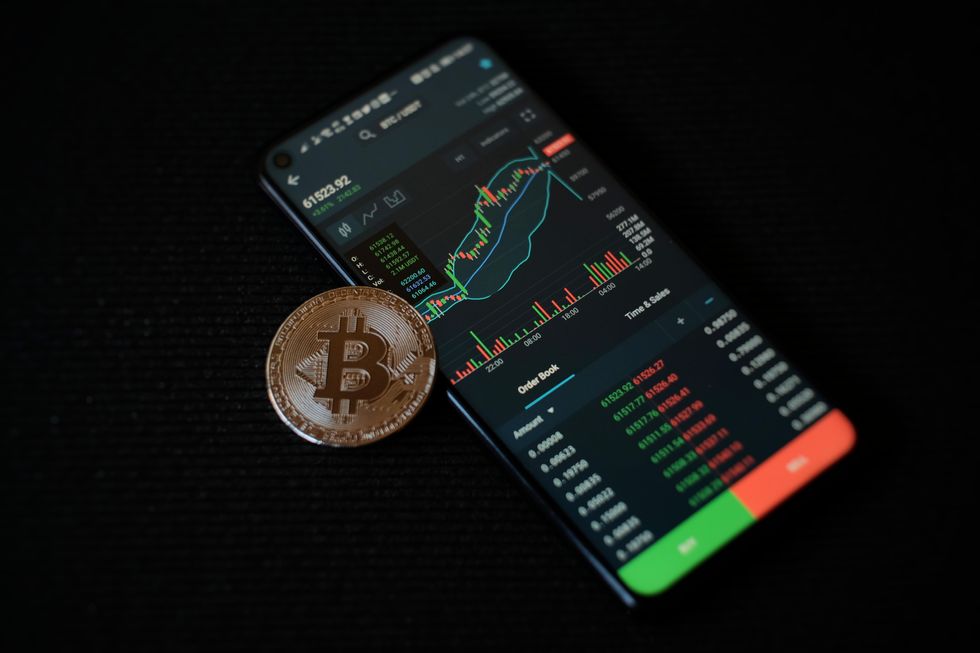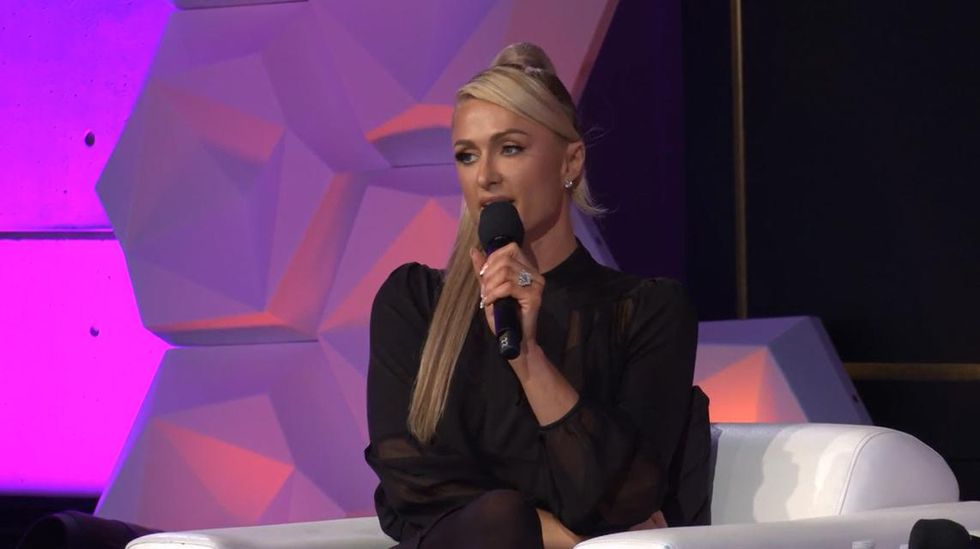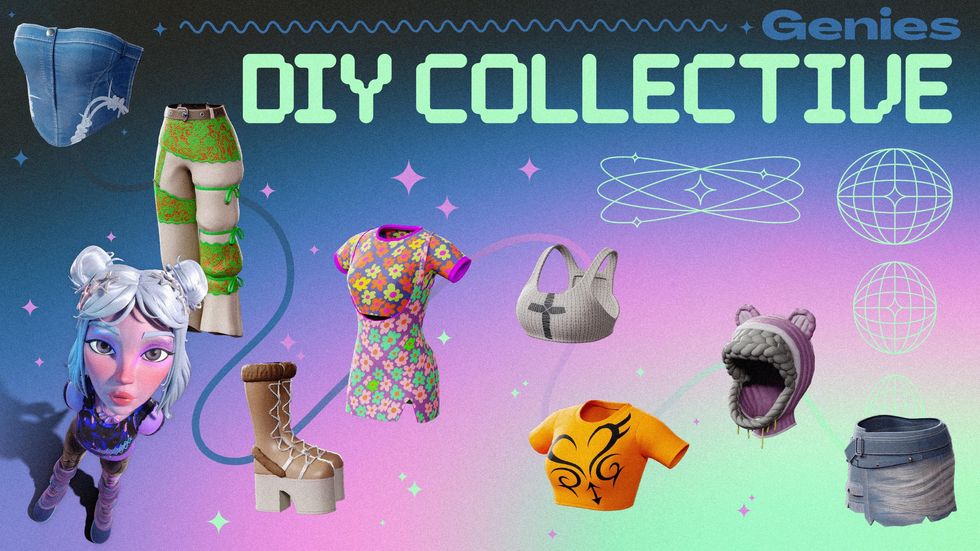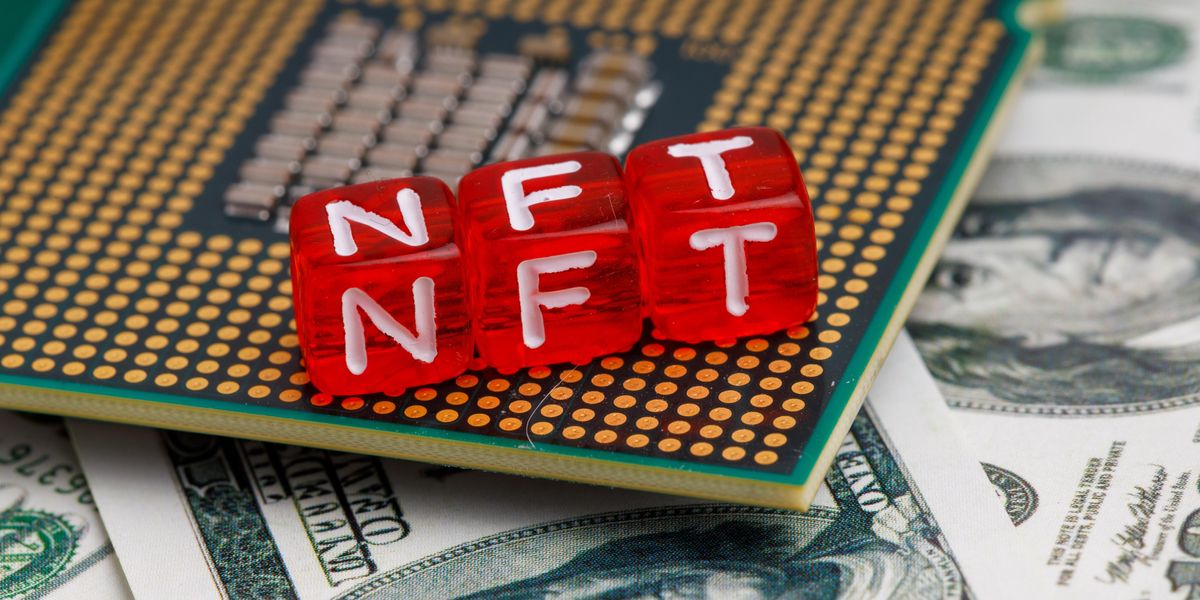Get in the KNOW
on LA Startups & Tech
Kristin Snyder is an editorial intern for dot.la. She previously interned with Tiger Oak Media and led the arts section for UCLA's Daily Bruin.
The first International NFT Day is celebrating the digital assets sweeping the Internet.
The day is meant to highlight the nonfungible tokens that have quickly gained popularity by bringing together companies like a16z, Dapper Labs and Metaverse HQ, among many others. The celebration comes amid the latest crypto crash, perhaps putting a slight damper on things. Still, celebrities like Snoop Dogg are observing the occasion.
From celebrity collection drops to local startups, here’s a roundup of all things NFT.
Entering the NFT space can be daunting. Scams abound—Titanium Blockchain CEO Michael Alan Stollery recently pled guilty in a crypto fraud case—and even celebrities like Seth Green aren’t immune to phishing. Here’s dot.LA’s guide to safely investing in NFTs. The key takeaways: do your research and be a bit paranoid.
Earlier this month, the California Assembly passed a bill that would require crypto companies to have licenses. If Gov. Gavin Newsom signs the bill, it could help regulate the space. 
Hollywood has gone big on crypto. Talent agency UTA has signed a number of NFT collections and creators to its talent roster. A number of NFTfilms offer viewers exclusive access to behind the scenes content and control over the characters.
Meanwhile, Bored Apes—of Bored Ape Yacht Club fame—are popping up in movies, TV shows and books. Bored Apes recently appeared in “The R3al Metaverse,” an animated series that brings together a number of NFT characters. The popular animated figure has also made its way to Cameo, where people can buy videos of the 3D ape in action. 
Celebrities are also betting on crypto. But Paris Hilton dubbing herself the “crypto queen” doesn’t mean she always follows the rules. The socialite was one of many celebrities to receive a letter from consumer watchdog group Truth in Advertising (TINA). Figures ranging from Justin Bieber to Gwyneth Paltrow were called out for not disclosing financial connections to the NFT collections they were promoting.
Intellectual property laws are also a point of contention with NFTs. Miramax recently settled its lawsuit against filmmaker Quentin Tarantino over his “Pulp Fiction” NFTs—however, plenty of IP-based NFT lawsuits are still up in the air.
Across Los Angeles, a number of startups are riding the NFT wave.
NFL legend Tom Brady launched his NFT agency, Autograph, in 2021. The Santa Monica-based company raised $170 million earlier this year. Celebrities like Tiger Woods and Naomi Osaka have used the platform for their own NFT drops. Brady is capitalizing on fans' apparent affinity for collectibles; most “avid sports fans” are interested in NFTs, according to a survey from National Research Group.
A number of LA startups are trying to make NFTs social. TerraZero sells digital land as NFTs for a virtual bar, while Jadu recently launched NFT avatars for its gaming platform. For those looking to make the digital physical, Long Beach’s NFT-themed restaurant accepts crypto payments.
Kristin Snyder is an editorial intern for dot.la. She previously interned with Tiger Oak Media and led the arts section for UCLA's Daily Bruin.
Christian Hetrick is dot.LA's Entertainment Tech Reporter. He was formerly a business reporter for the Philadelphia Inquirer and reported on New Jersey politics for the Observer and the Press of Atlantic City.
When avatar startup Genies raised $150 million in April, the company released an unusual message to the public: “Farewell.”
The Marina del Rey-based unicorn, which makes cartoon-like avatars for celebrities and aims to “build an avatar for every single person on Earth,” didn’t go under. Rather, Genies announced it would stay quiet for a while to focus on building avatar-creation products.
Genies representatives told dot.LA that the firm is now seeking more creators to try its creation tools for 3D avatars, digital fashion items and virtual experiences. On Thursday, the startup launched a three-week program called DIY Collective, which will mentor and financially support up-and-coming creatives.
Similar programs are common in the startup world and in the creator economy. For example, social media companies can use accelerator programs not only to support rising stars but to lure those creators—and their audiences—to the company’s platforms. Genies believes avatars will be a crucial part of the internet’s future and is similarly using its program to encourage creators to launch brands using Genies’ platform.
“I think us being able to work hands on with this next era—this next generation of designers and entrepreneurs—not only gets us a chance to understand how people want to use our platform and tools, but also allows us to nurture those types of creators that are going to exist and continue to build within our ecosystem,” said Allison Sturges, Genies’ head of strategic partnerships.
DIY Collective’s initial cohort will include roughly 15 people, Sturges said. They will spend three weeks at the Genies headquarters, participating in workshops and hearing from CEOs, fashion designers, tattoo artists and speakers from other industries, she added. Genies will provide creatives with funding to build brands and audiences, though Sturges declined to share how much. By the end of the program, participants will be able to sell digital goods through the company’s NFT marketplace, The Warehouse. There, people can buy, sell and trade avatar creations, such as wearable items.
Genies will accept applications for the debut program until Aug. 1. It will kick off on Aug. 8, and previous experience in digital fashion and 3D art development is not required.
Sturges said that the program will teach people “about the tools and capabilities that they will have” through Genies’ platform, as well as “how to think about building their own avatar ecosystem brands and even their own audience.” 
Founded in 2017, Genies established itself by making avatars for celebrities from Rihanna to Russell Westbrook, who have used the online lookalikes for social media and sponsorship opportunities. The 150-person company, which has raised at least $250 million to date, has secured partnerships with Universal Music Group and Warner Music Group to make avatars for each music label’s entire roster of artists. Former Disney boss Bob Iger joined the company’s board in March.
The company wants to extend avatars to everyone else. Avatars—digital figures that represent an individual—may be the way people interact with each other in the 3D virtual worlds of the metaverse, the much-hyped iteration of the internet where users may one day work, shop and socialize. A company spokesperson previously told dot.LA that Genies has been beta testing avatar creator tools with invite-only users and gives creators “full ownership and commercialization rights” over their creations collecting a 5% transaction fee each time an avatar NFT is sold.
“It's an opportunity for people to build their most expressive and authentic self within this digital era,” Sturges said of avatars.
The company’s call for creators could be a sign that Genies is close to rolling out the Warehouse and its tools publicly. Asked what these avatar tools might look like, the startup went somewhat quiet again.
Allison Sturges said, “I think that's probably something that I'll hold off on sharing. We will be rolling some of this out soon.”
Christian Hetrick is dot.LA's Entertainment Tech Reporter. He was formerly a business reporter for the Philadelphia Inquirer and reported on New Jersey politics for the Observer and the Press of Atlantic City.
Christian Hetrick is dot.LA's Entertainment Tech Reporter. He was formerly a business reporter for the Philadelphia Inquirer and reported on New Jersey politics for the Observer and the Press of Atlantic City.
LA Tech Week—a weeklong showcase of the region’s growing startup ecosystem—is coming this August.
The seven-day series of events, from Aug. 15 through Aug. 21, is a chance for the Los Angeles startup community to network, share insights and pitch themselves to investors. It comes a year after hundreds of people gathered for a similar event that allowed the L.A. tech community—often in the shadow of Silicon Valley—to flex its muscles.
From fireside chats with prominent founders to a panel on aerospace, here are some highlights from the roughly 30 events happening during LA Tech Week, including one hosted by dot.LA.
DoorDash’s Founding Story: Stanley Tang, a cofounder and chief product officer of delivery giant DoorDash, speaks with Pear VC's founding managing partner, Pejman Nozad. They'll discuss how to grow a tech company from seed stage all the way to an initial public offering. Aug. 19 at 10 a.m. to 12 p.m. in Santa Monica.
The Founders Guide to LA: A presentation from dot.LA cofounder and executive chairman Spencer Rascoff, who co-founded Zillow and served as the real estate marketplace firm’s CEO. Aug. 16 from 6 p.m. to 9 p.m. in Brentwood.
Time To Build: Los Angeles: Venture capital firm Andreessen Horowitz (a16z) hosts a discussion on how L.A. can maintain its momentum as one of the fastest-growing tech hubs in the U.S. Featured speakers include a16z general partners Connie Chan and Andrew Chen, as well as Grant Lafontaine, the cofounder and CEO of shopping marketplace Whatnot. Aug. 19 from 2 p.m. to 8 p.m. in Santa Monica.
How to Build Successful Startups in Difficult Industries: Leaders from Southern California’s healthcare and aerospace startups gather for panels and networking opportunities. Hosted by TechStars, the event includes speakers from the U.S. Space Force, NASA Jet Propulsion Lab, Applied VR and University of California Irvine. Aug. 15 from 1 p.m. to 5 p.m. in Culver City.
LA Tech Week Demo Day: Early stage startups from the L.A. area pitch a panel of judges including a16z’s Andrew Chen and Nikita Bier, who co-founded the Facebook-acquired social media app tbh. Inside a room of 100 tech leaders in a Beverly Hills mansion, the pitch contest is run by demo day events platform Stonks and live-in accelerator Launch House. Aug. 17 from 12:30 p.m. to 3 p.m. in Beverly Hills.
Registration information and a full list of LA Tech Week events can be found here.
Christian Hetrick is dot.LA's Entertainment Tech Reporter. He was formerly a business reporter for the Philadelphia Inquirer and reported on New Jersey politics for the Observer and the Press of Atlantic City.
Samson Amore is a reporter for dot.LA. He previously covered technology and entertainment for TheWrap and reported on the SoCal startup scene for the Los Angeles Business Journal. Send tips or pitches to [email protected] and find him on Twitter at @Samsonamore. Pronouns: he/him
After an anticipated delay, electric vehicle startup Vinfast said Thursday its U.S. stock exchange debut could happen sometime in 2023.
Vinfast originally planned to go public by the fourth quarter of this year. But the pushback in timing was expected; back in May Vingroup (the Vietnamese conglomerate that owns Vinfast and its California operations) chairman Pham Nhat Vuong told Reuters that given “lots of ongoing market uncertainties right now,” the IPO might have to wait.
“Market uncertainties” included delays in securing chips and other valuable EV components from China, which struggled to keep pace with manufacturing amid early COVID-19 lockdowns.
“The IPO is not just for fundraising. It's also about marketing and claiming VinFast's position globally,” Vuong told Reuters at the time.
While there’s no set price or listing date for the IPO yet, Bloomberg reported it could be worth up to $2 billion; if so, that’d be the largest IPO for any Vietnamese company.
At an event this week, Vinfast chief financial officer David Mansfield told reporters the company plans to become profitable within the next three years. He declined to share any information about sales targets because of the ongoing “potential listing process.”
Vinfast launched in 2017, entered the U.S. in 2019 and made its splashy debut at the Los Angeles Auto Show last November, where it unveiled plans to sell two electric SUVs, renamed to the VF8 and VF9.
Starting prices range up to $76,000 for customers who opt to lease their batteries from Vinfast using its subscription model (which is a new tactic for U.S. automakers, but Vinfast is betting it could decrease customers’ latent performance anxiety and make its sticker price a little more attractive).
Although Vinfast hasn’t started production yet, it recently gained $1.2 billion in incentives to build a factory in North Carolina with an annual capacity of 150,000 units. It expects cars to begin rolling out beginning in 2024.
The company had a packed July; it announced $4 billion in loans to expand in the U.S., opened six showrooms in California and inked a partnership with Taiwanese solid-state battery maker ProLogium to supply batteries for Vinfast’s production lines in Asia.
Some of Vinfast’s autos have already been spotted in California, to mixed reviews – one recent visitor to the company’s Berkeley showroom called the cars “hideously ugly… Tesla knockoffs.”
The company’s ambitious goal is to deliver at least 1 million cars worldwide within the next six years and reach profitability by 2023. Mansfield said he predicted that it’d take awhile to reach that milestone and noted the initial sales will be “substantially less than that number.”
Samson Amore is a reporter for dot.LA. He previously covered technology and entertainment for TheWrap and reported on the SoCal startup scene for the Los Angeles Business Journal. Send tips or pitches to [email protected] and find him on Twitter at @Samsonamore. Pronouns: he/him
© dot.LA All rights reserved

